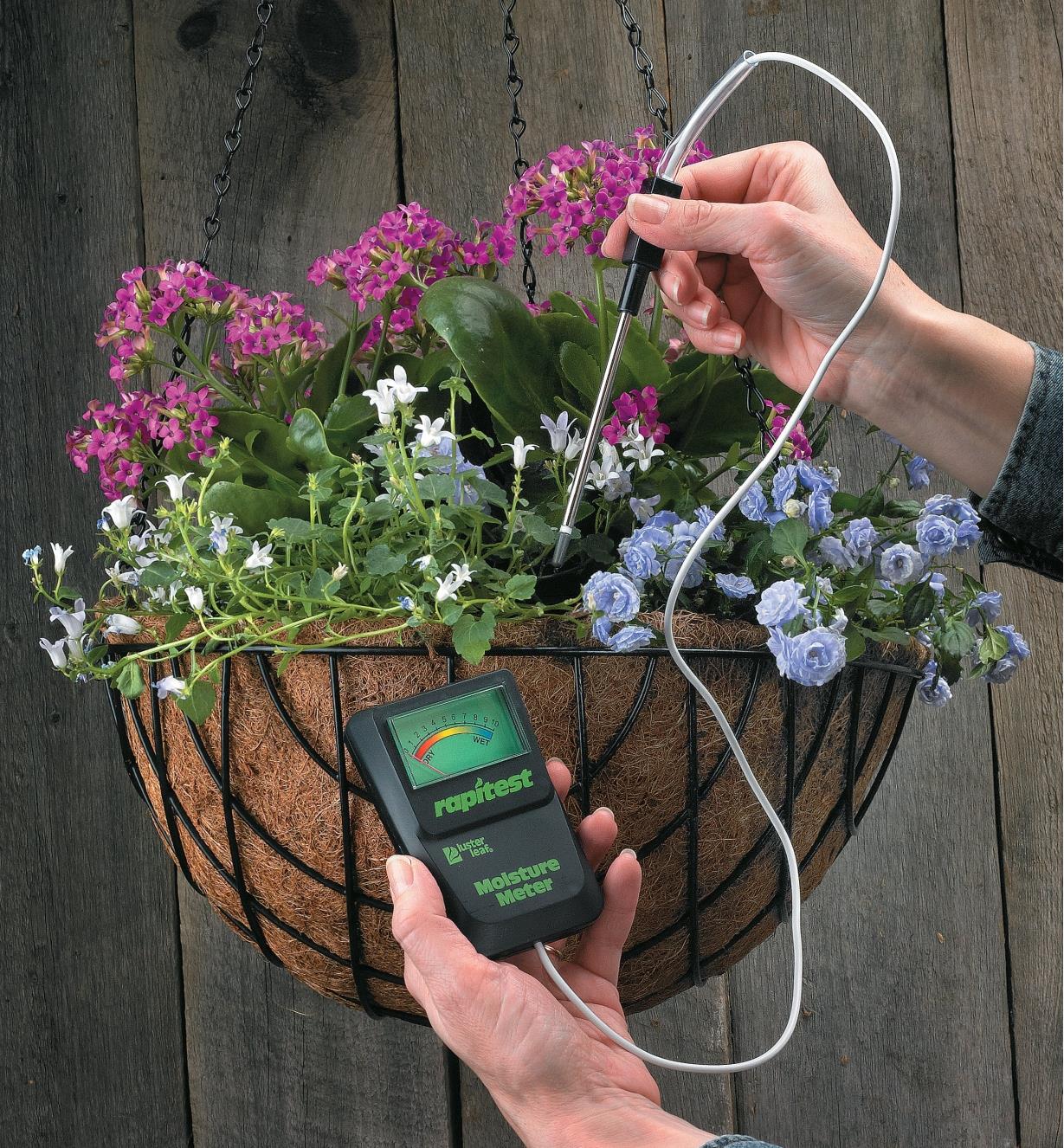Why Every Home Owner Requirements a Moisture Meter: Secret Advantages and Features
Why Every Home Owner Requirements a Moisture Meter: Secret Advantages and Features
Blog Article
The Ultimate Guide to Moisture Meters: A Comprehensive Overview and Exactly How They Can Conserve You Cash
Moisture meters serve as crucial devices in detecting and keeping an eye on moisture web content in products, aiding in preventing expensive problems and making certain the top quality of products. Comprehending the nuances of different types of dampness meters, their applications, and the potential cost-saving advantages they provide can be a game-changer for professionals and services alike.
Kinds of Dampness Meters
One typical kind is the pin-type moisture meter, which determines the electric resistance in between 2 pins placed into a product. Pinless dampness meters, on the other hand, use electromagnetic sensing unit plates to scan a bigger location without causing damage to the material's surface area.

Additionally, there are additionally specialty dampness meters designed for certain products like hay, soil, or grain. These meters supply precise dampness analyses tailored to the one-of-a-kind properties of the product being examined. Infrared wetness meters gauge the thermal residential properties of a product to determine its dampness web content non-invasively, making them beneficial for applications where pin or pinless meters may not appropriate. Recognizing the various kinds of dampness meters readily available can assist markets choose one of the most ideal tool for their particular wetness dimension needs.

Benefits of Making Use Of Dampness Meters
Dampness meters provide very useful benefits in precisely evaluating and checking wetness levels in diverse materials and atmospheres. One of the main benefits of utilizing dampness meters is the prevention of possible damages caused by excess wetness.
In addition, making use of moisture meters can lead to boosted power performance. In farming settings, moisture meters play a critical role in maximizing plant returns by enabling farmers to check dirt wetness levels and make educated watering decisions.
Just How to Pick the Right Moisture Meter
When picking a wetness meter, it's essential to make sure that the meter is appropriate for the details product you will certainly be screening. Various materials have varying electric homes that can influence dampness analyses, so selecting a meter created for your product is important for precise outcomes. By thoroughly evaluating these aspects, you can select a moisture meter that fulfills your requirements and gives accurate dampness measurements for your jobs.
Correct Methods for Moisture Meter Use

Cost Cost Savings Via Wetness Meter Applications
How can the tactical application of wetness meters lead to significant cost financial savings across numerous markets? Moisture meters play an important function in cost savings by stopping potential damages and making certain quality control in different sectors. In the farming sector, dampness meters aid in figuring out the ideal time for harvesting plants, protecting against over-drying or excess moisture that can impact the final product's high quality. This specific surveillance aids farmers stay clear of unneeded losses and optimize their yield.
In a similar way, in building and construction, dampness meters aid prevent pricey damages by spotting moisture degrees in building materials, such as wood or try this web-site concrete, which can cause architectural concerns otherwise attended to quickly. By determining trouble locations beforehand, contractors can take restorative procedures to prevent extensive fixings or replacements, eventually conserving check money and time.
Additionally, in the food processing market, dampness meters are important for checking product high quality and ensuring compliance with security guidelines. By accurately determining moisture content in foodstuff, suppliers can avoid perishing, maintain freshness, and minimize waste, resulting in significant price savings. Overall, the tactical application of moisture meters is a valuable investment that can bring about considerable cost decreases and improved efficiency throughout different industries.
Final Thought
In conclusion, moisture meters are important tools for detecting and measuring moisture levels in different materials. By utilizing the appropriate moisture meter and complying with appropriate techniques, individuals can successfully stop pricey problems triggered by excess dampness.
Dampness meters serve as important devices in spotting and checking moisture content in products, assisting in stopping expensive problems and making sure the high quality of products. Infrared wetness meters measure the thermal residential or commercial properties of a material to establish its moisture content non-invasively, making them useful for applications where pin or pinless meters may not be suitable.Wetness meters provide vital benefits in properly assessing and checking dampness degrees in diverse products and atmospheres. In farming settings, dampness meters play a critical duty in maximizing crop returns by making it possible for farmers to keep track of dirt dampness degrees and make educated watering decisions.In conclusion, moisture meters are important tools for gauging and discovering wetness levels in various products.
Report this page